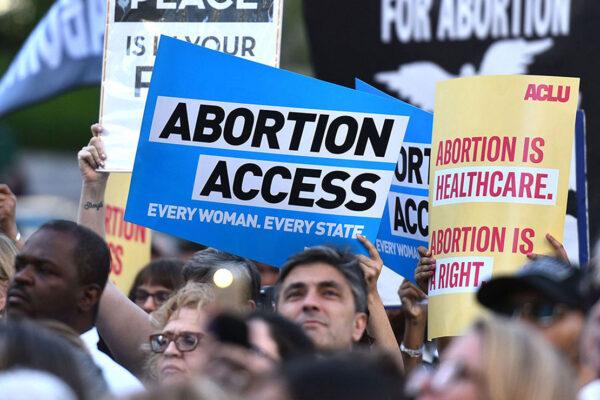On
Tuesday, a federal court issued a decision in our challenge to Alabama’s
near-total ban on abortion blocking the law from taking effect. The decision
comes on the heels of similar rulings blocking abortion bans in Arkansas,
Georgia, Kentucky, Missouri, Ohio, and Utah. In other words, the ACLU has an
undefeated, 7-0 record challenging state abortion bans in court. None of the state abortion bans passed
earlier this year will be permitted to take effect. Abortion is – and will
remain – legal in all 50 states.
The
Alabama ban, like all the others, is the anti-abortion movement’s true agenda
on full display—ban abortion, punish women, jail doctors, and shame people
seeking care. The politicians who pass these bans are part of a concerted,
national effort to unravel access to abortion and ultimately the legal right to
it. Despite strong public support for safe, supported abortion care, these
politicians hope that the balance of the Supreme Court has turned against abortion
rights with enough votes to aggressively and systematically dismantle abortion
access.
Not
on our watch.
The
bans, however, are by no means the only threat to abortion access in this
country. We cannot lose sight of the fact that politicians can effectively
outlaw abortion for thousands of people without having to overturn Roe v. Wade. Take Louisiana, for example, where the
Supreme Court is considering a law requiring abortion providers to have
admitting privileges at a local hospital – a law virtually identical to the one
the Supreme Court already struck down in 2016 in Whole Women’s Health v. Hellerstedt. If the Court allows the Louisiana
law to take effect, it would shutter all the clinics in the state except for
one.
https://twitter.com/ACLU/statuses/1189343070791327744
Indeed,
across the country, politicians have created a web of medically unnecessary,
politically-motivated restrictions that push abortion care out of reach for
many, but particularly for low-income people, young people, and people of
color. Since 2011, state legislators across the country have passed 479 such restrictions,
leaving increasingly vast areas of our country with few or no abortion
providers at all. Today, there is only one clinic left standing in Kentucky,
Mississippi, Missouri, North Dakota, South Dakota, and West Virginia. These
restrictions, whether they ban certain methods, require a patient have multiple
visits, or require clinics to set up hospital-like facilities, have nothing to
do with women’s health or safe care and everything to do with
making abortion nearly impossible to obtain.
Whether it’s an outright ban or a more subtle attempt to push
abortion out of reach, my colleagues and I will continue taking these states to court to make sure that
abortion care with dignity and respect remains available to all.
But let’s not stop there. Alabama has the second-highest infant mortality in the country. Georgia,
another state that passed a law banning abortion, has the highest maternal mortality rate in the
country. If legislators in these states really cared about women,
children, and families, they would address those life-threatening issues, not
try to pass laws that force people to remain pregnant against their will.
Legal victories are critical and important, but justice requires
more. Instead of criminalizing health care, interfering with personal
decisions, and substituting political agendas for the expertise of health care
professionals, our politicians should be doing everything they can to ensure
people can have healthy pregnancies and healthy deliveries, to ensure that
people can raise their families in safe communities, without fear of violence,
wanting for food or shelter, access to childcare, jobs, and education. That would be more than a victory—it
would be justice.

